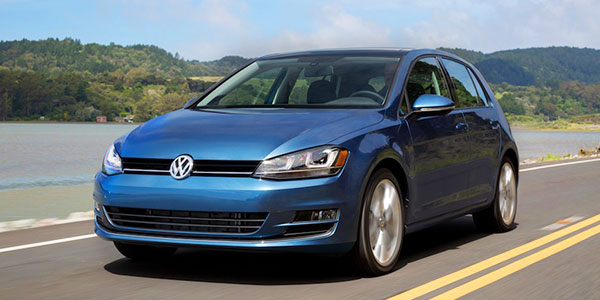There’s a rough road ahead for consumers strapped into Volkswagen and Audi diesel cars, the ones revealed last week to have been kitted out with software to fool emissions testing.
About half a million of the suspect cars likely will be recalled in the U.S. alone, though there are about 11 million of the questionable vehicles on the road around the world.
Volkswagen has appropriated about US$7.3 billion to mitigate the cost of the crisis it admitted to creating, in so many words. For now, though, Volkswagen and the EPA need to decide if any fixes are possible, and to determine the best way to execute the retrofitting, according to Akshay Anand, an analyst for Kelley Blue Book.
“The likely answer is that a recall notice will be sent to VW diesel owners to go to their dealers and have the ECUs or computer units modified,” he told CRM Buyer. “However, the scope of any potential recall is still likely being hashed out at this point as VW continues to deal with turnover in their executive ranks.”
Das Audacious
The EPA sent Volkswagen a NOV (Notice of Violation) that accused it of using an algorithm that tuned the company’s cars to operate within the EPA’s acceptable range for emissions. The software was designed to sense emissions testing and to tune the emissions control unit accordingly.
When not being scrutinized by emissions testing, the subject vehicles were found to put out nitrogen oxides at up gto 40 times the standard.
The vehicles equipped with the deceptive software include Jetta (Model Years 2009 through 2015), Beetle (Model Years 2009 through 2015), Audi A3 (Model Years 2009 through 2015), Golf (Model Years 2009 through 2015) and Passat (Model Years 2014 through 2015).
This week, Volkswagen CEO Martin Winterkorn took responsibility for the “irregularities” discovered by researchers and confirmed by federal regulators. Winterkorn stepped down on Wednesday, as the company prepared for up to $15 billion in fines from the Environmental Protection Agency and other regulatory groups.
Claiming culpability is an important step, but this journey is far from over, according to Agnes Huff, CEO of the Agnes Huff Communications Group.
The “coming months and years will continue keep the scandal in the headlines as advancements unfold during the investigation: the filing of potential lawsuits, new regulations, recalls, stock prices and so on,” she told CRM Buyer. “It also has the potential to impact the entire automotive industry with increased scrutiny and potential new regulations, and potentially give VW’s competitors an advantage.”
Customer Care
The possibility of $15 billion gives Volkswagen a general idea of what it might have to pay out to consumers, dealers, public relations teams and regulators. Much less is known about how much this scandal will cost the automaker in brand loyalty — but it isn’t impossible for Volkswagen to rebuild what it has burned, according to Anand.
“Consumers are also likely to have negative sentiments in the near term, though if past automotive scandals are any indication, time may alleviate these negative sentiments over the long-term,” Anand said. “Long-term financials are still a question mark, as how this affects VW going forward is still largely unknown in terms of money to sink into this crisis.”
For the short term, Volkswagen is at least on the right road, according to Huff. The automaker was quick to admit fault, removed its CEO in short order, and vowed to launch an internal investigation.
Yet, many of the company’s loyal customers feel let down and even duped, she said. Many of them now question the brand’s overall integrity.
“Regaining customer trust will be an ongoing challenge, where they will have to publicly and consistently demonstrate on many levels that they have the ability to change the systemic internal issues that created this crisis, which does not happen overnight,” said Huff.
Volkswagen’s success in restoring the positive perception of its brand will depend on how well it handles the internal investigation, how the company’s new leadership conducts itself going forward, how much it improves its policies, and how well it does in avoiding “negative brand association,” she said.
“It’s like finding out about a cheating spouse who admits it and promises they will never do it again,” said Huff. “They must live with increased scrutiny and must demonstrate fidelity for a long time to rebuild trust.”













































Social CRM
See all Social CRM